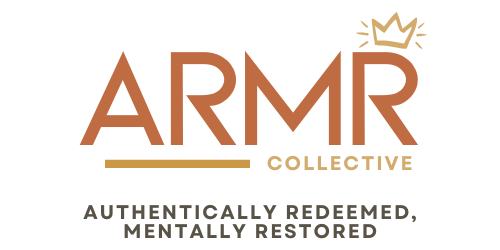Someone asked me recently, “Why do you keep living like your sins haven’t been forgiven? Why do you punish yourself for things He’s forgiven?”
And I was floored.
I punish myself for past mistakes all the time. “I should’ve done this, why didn’t I do that?” replays in my mind at the most inopportune times. And I know I’m not alone.
Theologically, we know we’re forgiven. Romans 8:1 says, “There is therefore now no condemnation for those who are in Christ Jesus.”
We believe that Jesus died on the cross to pay for our sins. We believe all sins have been forgiven…for other people. But for ourselves? We get stuck in a loop of replaying our worst moments and reliving our failures. We insist on carrying our guilt on our backs like a hiker refusing to drop a heavy pack even though someone already lifted it off their shoulders.
So why do we keep punishing ourselves for sins that have already been paid for?
What if this self-punishment is actually refusing God’s gift? What if by living like we’re unforgiven, we’re showing spiritual pride disguised as humility? And what if the mental health struggle of rumination and overthinking is deeply connected to our inability to accept grace?
The Theological Truth We Know
All throughout Scripture, we’re told about God’s grace and forgiveness. Romans 5:8 says, “But God shows His love for us in that while we were still sinners, Christ died for us.” John writes in 1 John 1:9 that if we “confess our sins, He is faithful and just to forgive us our sins and to cleanse us from all unrighteousness.”
What Does This Mean for Us?
This means forgiveness is complete, not partial. We are forgiven for all sins, not just some of them. And with this forgiveness comes divine grace. We don’t deserve forgiveness; we could never earn it no matter what we do, and we can’t try to pay it back. Jesus Christ already paid for it, past tense. It is already done. There is no sin too big, no failure too shameful, no mistake too terrible.
The gift has already been given.
The problem is that our minds get in our own way. Intellectually and theologically, we know Jesus died for our sins. His sacrifice erased our sins completely, and we’re passionate about spreading the good news. We’d defend it if someone challenged it. We’d tell our best friends about it.
So why don’t we live like it’s true for us?
The Reality We Actually Live
What Self-Punishment Looks Like
Sometimes I’ll be minding my own business, maybe playing with my kids or just laying on the couch when all of a sudden my mind decides to roll the “Your Top Ten Latest Failures” tape. Instantly, I start ruminating on what I should’ve done differently. “I wish I had said this” or “I wish I hadn’t done that” plays on a loop, and I take on the role of a referee reviewing the plays of my life.
Sometimes we might even go as far as withholding joy from ourselves. We might develop a mentality of “I don’t deserve to be happy after what I did”. We might actually start to sabotage our own happiness—“I’m not worthy of this relationship/opportunity/blessing”. Maybe we live in constant guilt even after we’ve confessed and repented. We say horrible things to ourselves that we’d never say to others. In turn, we treat ourselves worse than God treats us.
The Internal Narrative
Negative phrases get stuck in our heads, like an annoying pop song. “I can’t believe I did that. What’s wrong with me? I should’ve known better. How could I be so stupid, selfish, and careless? I don’t deserve forgiveness. God might forgive me, but I can’t forgive myself.”
Or maybe you’re like me and constantly think, “I need to feel bad about this to prove I’m really sorry.”
When we do this, we hold ourselves to standards that God doesn’t even hold us to. We refuse to move forward until we’ve “paid enough”. Shame traps us in its web even after genuine repentance. And we live with shackles on even when we’ve been declared innocent.
We act unforgiven even though we’ve been forgiven.
All of this—the mental replays, the negative self-talk, the refusing to move forward—has a name: rumination.
What is Rumination?
I learned about rumination recently, and it’s not just good, old-fashioned overthinking. Rumination is a repetitive, passive focus on problems, their causes and consequences, without moving toward solutions. The key here is that rumination is not problem-solving; it’s not productive. And it’s not processing that leads somewhere. Rumination is mental looping, replaying the same thoughts over and over without getting anywhere.
Overthinking might eventually take you somewhere, even if it takes a while. But rumination never leads anywhere; it just keeps you stuck with replaying the same questions, the same regrets, the same scenarios. If overthinking is taking the long way home, rumination is driving in circles in the parking lot and never leaving.
When it comes to our past sins, a lot of us aren’t just thinking about them—we’re ruminating on them.
We replay what we did wrong. We ask ourselves “Why did I do that?” without ever finding an answer. We mentally review our failures over and over. We cycle through the same guilt without ever reaching peace.
We’re stuck in the loop.
And that loop isn’t processing. It’s not healthy conviction. It’s not even productive repentance.
It’s self-punishment dressed up as thinking.
Two Types of Rumination
When we ruminate, we convince ourselves we’re processing, but we’re actually torturing ourselves with mental loops that keep us stuck in guilt.
When I learned about rumination, I recognized myself in it immediately, especially when I’m trying to figure out what God wants me to do. Looking back, I realized a lot of my “overthinking” was rumination. I tell myself I’m “figuring things out” or “processing” but I’m stuck driving around in circles in the parking lot. This realization helped me understand there are two types of rumination we experience: past and present.
Past rumination is more so about replaying past mistakes and beating ourselves up for things we’ve done. But present rumination is the decision fatigue, analysis paralysis thought loops. “What should I do? What does God want me to do?” we might think. The same thing happens here; we get stuck thinking in circles but this time it’s about decisions.
When we ruminate on past sins, we might think, “I can’t forgive myself. Why did I do that? I need to figure out what’s wrong with me.” But when we ruminate on present decisions, we might think, “What does God want me to do? What’s the right choice? What if I get it wrong? Am I really hearing His voice?” With present rumination, we refuse God’s guidance and peace. We try to control outcomes through perfect decision-making. And we aren’t able to trust that God will guide, lead, and correct us.
Both types of rumination have the same core problem: we’re trying to maintain control instead of trusting God. We can’t think our way to forgiveness—we have to accept it. And we can’t think our way to certainty—we have to trust God’s leading.
I caught myself in a present rumination loop a few days ago. I was really wrestling with something, literally spent two hours thinking about it. Finally, I stopped trying to think my way to the answer and asked God, “What should I do?”
And He said two words. “Go anyway.” That two-word answer solved what two hours of thinking couldn’t.
So, I did. I still don’t know what will come of it, but I just did what He told me. The issue isn’t resolved, but at least I know I’m doing what He wants.
That’s the difference between rumination and trust. Rumination says, “If I think more, I’ll figure it out.” But trust says, “God, I don’t know. What do You want?”
One keeps us stuck. The other sets us free.
And staying stuck—whether in past guilt or present paralysis—comes at a real cost.
The Mental and Spiritual Cost of Rumination
When we ruminate, whether on past sins or present decisions, our minds never rest. We’re constantly replaying, analyzing, questioning, cycling. And that constant mental activity without resolution takes a real toll on our mental and spiritual health.
Constant worry about the past and/or future feeds anxiety, and ruminating on negative thoughts can deepen depression. Rumination also feeds OCD cycles, where repetitive mental checking and reviewing become compulsions that intensify rather than resolve anxiety. It also creates the shame to rumination to more shame loop that we get stuck in. We start to forget what peace feels like, and we’re completely exhausted.
Rumination steals our present by trapping us in the past and future.
The spiritual cost of rumination is just as high. We can’t receive grace because we’re too busy punishing ourselves. We don’t let ourselves experience joy because we “don’t deserve it”. We can’t move forward because we’re trapped in debilitating thought patterns. We haven’t forgiven ourselves for past mistakes, so how can we trust God’s forgiveness?
In turn, we live like we’re totally broke when we have a million-dollar gift certificate in our back pocket.
But why do we do this? Why do we refuse the gift that’s already ours?
Are We Refusing God’s Gift?
So what if when we self-punish, we’re not actually humbling ourselves? What if it’s a distorted version of spiritual pride? What if instead of saying we’re not deserving, we’re really saying, “What Jesus did wasn’t enough. I need to add my suffering to His to be fully forgiven”?
The Pride Hidden in Self-Punishment
I know this sounds harsh. We don’t feel prideful when we’re beating ourselves up. We feel humble, guilty, and remorseful.
But think about what we’re actually saying:
“I need to earn my forgiveness.” This means: What Christ did on the cross wasn’t sufficient. I need to add my suffering to His. My payment matters too. That’s pride, acting like we have something to contribute to a finished work.
“I can’t forgive myself.” This means: God says I’m forgiven, but my opinion of myself matters more than His declaration. I’m holding myself to a standard higher than God’s. That’s pride, elevating our judgment above God’s.
“I need to feel bad to prove I’m sorry.” This means: My feelings add something to Christ’s sacrifice. Genuine repentance requires my emotional suffering, not just His physical suffering. That’s pride, acting like our feelings matter more than His finished work.
“I’m not worthy.” You’re right! None of us are. That’s the entire point of grace. It’s not about being worthy. It’s about being offered a gift anyway.
When you refuse a gift because you didn’t earn it, you’re not being humble. You’re being proud. You’re saying, “I won’t accept anything I haven’t earned. I won’t receive what I don’t deserve.”
But that’s what grace IS, receiving what we don’t deserve.
Refusing the gift because we’re unworthy isn’t humility. It’s pride disguised as humility. It’s us deciding that our unworthiness disqualifies us from receiving what God has already freely given.
It’s like someone giving us a wrapped present and saying, “No thanks. I’ll pay for it myself.”
We refuse the gift He already gave, not because the gift isn’t good enough, but because we don’t think we’re good enough to receive it.
But Christ didn’t die for us because we deserved it—He died for us BECAUSE we didn’t deserve it.
(And if you’re now ruminating about whether you’ve been prideful this whole time and feeling guilty about that, yes, you’re doing it again. The point isn’t to add “pride” to your list of things to feel bad about. The point is to recognize the pattern so you can stop the cycle, not start a new one about feeling bad for having the old one.)
So Why Do We Keep Doing This?
If self-punishment is pride, and refusing God’s gift dishonors the cross, why do we keep living this way?
Maybe because we don’t really believe we’re allowed to stop. Maybe because suffering feels safer than freedom: at least when we’re punishing ourselves, we feel like we’re doing something. Maybe because we think we need to earn what’s already been given, and accepting a free gift feels too easy, too good to be true.
Or maybe it’s because we’ve been taught, whether explicitly or implicitly, that feeling bad is proof of genuine repentance. That if we stop carrying our guilt, we’ll become careless about sin. That self-punishment keeps us humble and accountable.
Here’s the thing: none of that is biblical.
Godly Sorrow vs Self-Punishment
But wait, if I stop punishing myself, doesn’t that mean I don’t care about sin? Isn’t feeling bad proof that I’m truly repentant? Won’t I just sin more if I accept grace too easily?
This fear is what keeps us trapped. But there’s a difference between godly sorrow and self-punishment.
Godly sorrow leads to repentance—a change of mind and direction. It produces action: confession, making amends where possible, turning away from sin. It has an endpoint. We confess, repent, receive forgiveness, move forward. Godly sorrow draws us toward God and leads to life.
Self-punishment leads nowhere. It produces paralysis, cycles of shame, exhaustion and despair. There’s no endpoint—never “enough” suffering to feel forgiven. It pushes us away from God and leads to spiritual, emotional, and sometimes physical death.
So how do we break free from self-punishment and actually live in the forgiveness God offers?
Living in Forgiveness
It starts with a choice, not a feeling. Remember “go anyway”? That’s the mindset we need. We might not FEEL forgiven. We might not FEEL worthy. But feelings aren’t facts. Living in forgiveness means choosing to accept God’s verdict over our emotions, even when it doesn’t feel like we “should”.
Practical Steps to Break the Cycle
1. Name the Pattern
Try to recognize when you’re stuck in a ruminating cycle, whether it be past or present. Take a step back from your cluttered mind and ask, “Am I doing it again? Are these thoughts leading me anywhere?” Check and see if you’re punishing yourself again or refusing God’s gift.
Naming it breaks its power.
2. Interrupt the Loop
Tell your brain, “We are now interrupting this program, because it’s destructive and going nowhere.”
For past rumination: When you catch yourself replaying failures, tell yourself, “Not now, brain.” When guilt spirals start, say, “I’ve already confessed this.” And when self-punishment starts up, declare, “This doesn’t honor what Christ did.”
For present rumination: When you’re cycling through “What should I do?” for the hundredth time, say, “I’m not deciding this right now.” When you’re analyzing every angle without progress, redirect: “I’ll ask God directly instead of thinking in circles.”
Instead of engaging in the cycle, redirect.
3. Speak Truth to Yourself
Instead of flooding your mind with negative words you’d never utter to another person, speak life to yourself.
For past sins: Remind yourself that God has forgiven this. We are no longer condemned, and Christ’s payment was sufficient. We don’t have to earn what’s already been given.
For present decisions: Remind yourself that God promises to guide you. Isaiah 30:21 says, “Whether you turn to the right or to the left, your ears will hear a voice behind you, saying, ‘This is the way; walk in it’.” You don’t have to figure it out perfectly on your own.
Talk to yourself like God talks to you. And if you don’t know what that looks like, go to the Bible. If you need help with this, I’ve included a Scripture guide here and at the end of this post with verses for when you’re feeling discouraged, anxious, guilty, overwhelmed, and more.
4. Accept the Gift Daily
Start each morning with a short prayer: “Thank You for forgiving me. Help me to accept that today.” When the guilt about the past comes, say, “I receive Your grace right now.” And when anxiety about decisions comes, say, “I trust You to guide me.”
This is a daily practice, not a one-time decision. Accepting forgiveness and trusting in God’s guidance are both choices we make over and over, sometimes moment by moment.
5. Get Help If You Need It
If rumination has become a deeply ingrained pattern, whether you’re stuck replaying past failures or paralyzed by present decisions, consider getting professional help. A therapist can help you identify and break rumination cycles. A spiritual director can help you discern God’s voice from anxious thoughts. A trusted community can provide accountability.
You don’t have to do this alone.
Permission to Stop
You Don’t Have to Keep Carrying This
Whatever you’re replaying in your mind right now, whatever failure you can’t forgive yourself for, whatever decision you’re overanalyzing, Christ already carried it. You don’t have to add your suffering to His.
It’s not humility to reject God’s gift. It’s not honoring to live unforgiven when we’ve been forgiven. Living as if Christ’s sacrifice wasn’t enough dishonors the cross. Living in guilt dishonors the cross. But living in freedom honors it and the gift given to us by His divine grace.
If reading this made you realize you’ve been refusing God’s gift through pride, and you’re now feeling guilty about that—stop. You’re doing it again. The point isn’t to give you one more thing to punish yourself for. The point is to help you see the pattern so you can finally stop, accept the gift, and move forward.
You’re Allowed to Accept the Gift
Even if you don’t feel worthy, you’re not, and none of us are. Even if you think you should suffer more, you don’t need to. Even if you’re afraid of being “too easy” on yourself, grace is always “too easy”. Even if you can’t forgive yourself, God already did.
You’re allowed to stop punishing yourself.
Stop replaying it. Stop withholding joy from yourself. Stop living like you’re still guilty. Accept what He already gave. The gift is already paid for, wrapped, already yours.
You just have to open it.
Click here to view our Scripture Guide: What to Read When You’re Feeling…
You’re not alone.



